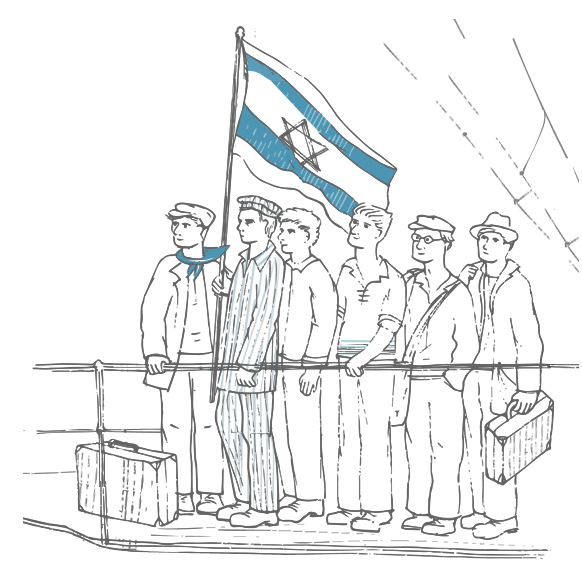Holocaust Survivors and the State of Israel


Behor Dadosh (later Beni Harel) was born in 1936 in Tripoli, Libya to Yosef and Rachel Dadosh. He had a younger brother and sister, Moshe and Wassina. His father was a trader and his mother a housewife.
In February 1941, the Germans entered Tripoli to reinforce the Italian army and lead the war. During the British bombing, the townspeople hid beneath the city wall. Yosef told Rachel not to flee there, lest she be persecuted by their Arab neighbors. Jewish men were rounded up and sent to forced labor camps in the desert, including Jado. Men who hid and were discovered were thrown from the rooftops. Yosef was also captured, but managed to escape.
One Friday evening in April 1941, during Shabbat candle-lighting, the family home was bombed. Beni's brother and sister were killed; he and his mother were injured. They were evacuated in a donkey cart to the village of Amrus outside Tripoli, and hidden from the Germans in a goat pen. Beni's grandfather Moshe and grandmother Masuda sent his maternal aunt Leah (Laura), to help them, and she managed to move them to the village of Zawia, where they were housed in a stable.
During one of the bombings, the stable was hit. Rachel burned to death before Beni's eyes. Leah was hit in the neck. His grandfather, an observant Jew, wished to give his daughter Rachel a Jewish burial in Tripoli, but no bodies were allowed to be brought in to the city. The grandfather rented a fancy carriage and drove to Zawia. There he dressed his dead daughter in a shroud with a wedding dress over the top. They rode to Tripoli with Beni's grandmother holding her daughter's body on one side and five-year-old Beni holding her body on the other, weeping bitterly. Thus, her body was smuggled to Tripoli and buried in a Jewish burial ground.
Beni stayed at his grandparent's house in Tripoli. Meanwhile, the Germans continued to search for Yosef. They arrived at the house, put a gun to the grandmother's head and threatened to kill her if she did not betray her son-in-law. They also threatened Beni. So, the next time they came looking for Yosef, Beni's grandmother hid Beni in a rolled-up mat. "She told me not to cry, not to breathe, not to cough," he said. They used this method every time the Germans came.
With the German surrender in Tripoli in January 1943 and the return of the British Army, Yosef returned to the city. Beni's grandfather wanted to take care of his grandson, the only son who had survived his eldest daughter. He married Yosef to 16-year-old Leah. The couple had 13 children.
In 1949, after the Arab riots against Jews living in Libya, the family immigrated to Israel and settled in Jerusalem. Beni worked in porterage, and then in construction. He helped build the Jerusalem's Israel Museum, Knesset, President's Residence, International Convention Center and the Hebrew University campus in Givat Ram. He was the gabbai (beadle) of a synagogue for thirty years, and initiated the construction of a hall in the synagogue named after his mother and aunt, Rachel and Leah. Beni and Jacqueline have four children and 15 grandchildren.